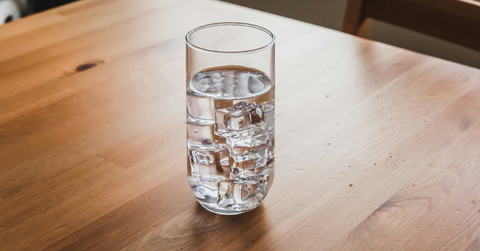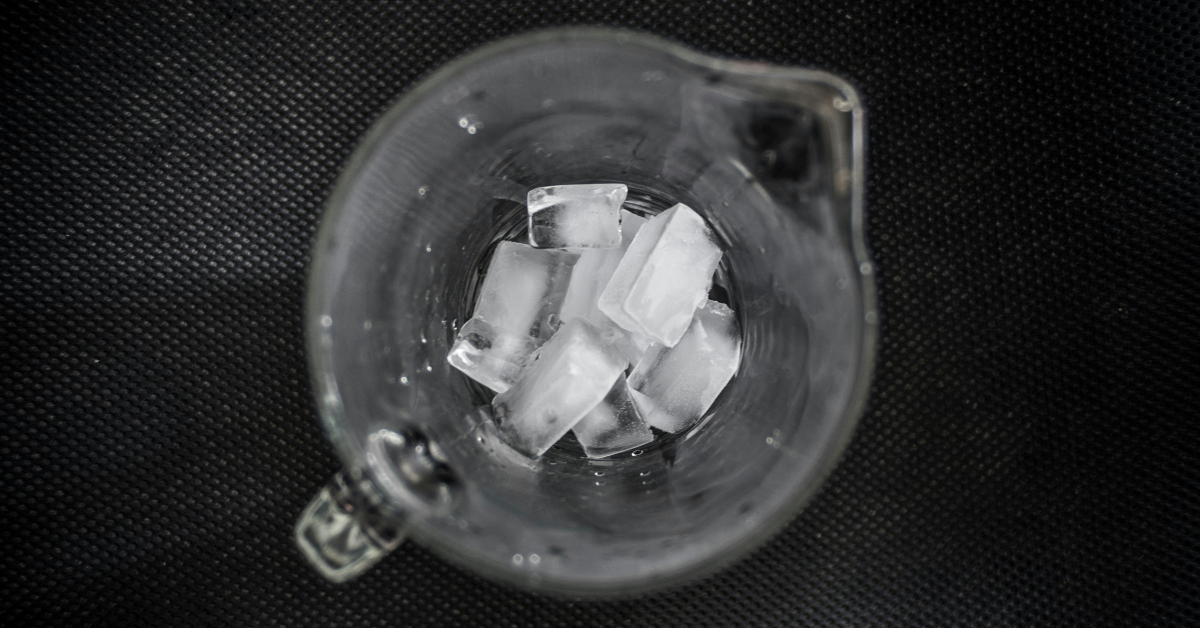Mystery Solved: Why Ice Cubes Sink in "Heavy Water"
There's actually a pretty cool scientific explanation behind the reason why your ice cubes don't float.
Published Oct. 24 2024, 3:00 p.m. ET

There's nothing better on a hot day than an ice cold glass of water. And if you've ever had the pleasure of reaching for a cool drink on a sweltering day, you may have paid special attention to the ice cubes responsible for chilling your beverage and pondered why some ice floats while other ice sinks.
That may have raised some questions for you, like what does it mean when ice cubes don't float? According to social media claims, ice cubes that don't float may be a sign that something nefarious is happening. But, the real reason why the ice cubes in your water glass are where they are has a lot more to do with chemistry than anything else.
Don't worry, I'll explain more about this phenomenon below.

What does it mean if your ice cubes don't float?
Many of us are used to our ice cubes floating to the top of our drink when it's full, which is why some people take special notice when it doesn't happen.
According to Live Science, there's actually a really cool reason (pun intended) why some ice cubes remain buoyant while others sink to the bottom of a glass, and it has to do with the chemical makeup and density of the water used to make the cubes.
To break this down, first you need to know that frozen water floats because it's not as dense as the liquid water underneath it. This is unique to water, according to the website, because most other liquids will get heavier when they are turned into a solid which means that the ice in your glass of soda or juice may behave differently.
Water owes this unusual ability to the molecular makeup of its structure, which includes two hydrogen atoms and one oxygen (H2O).
As the atoms freeze, they create an intricate pattern that looks like a lattice, leaving empty spaces between each bond that make them float.
So, what about the cubes that seem to sink to the bottom of your glass of water? Well, that may have more to do with the glass itself. According to some theories on Reddit, many times ice that appears to "sink" to the bottom of a glass is actually frozen in place because it's stuck to the cup.
What is "heavy water" and how does it lead to "heavy ice?"
Believe it or not, some water is actually denser than others. The U.S. Geological Survey (USGS) website notes that there is a variety of water known as D2O, where the hydrogen atoms have been swapped out and replaced with something called deuterium. This is called heavy water and ice made from D2O is aptly referred to as heavy ice.
This water is not for human consumption though, and instead it's often used in nuclear reactors.
Can sinking ice be a sign that your drink has been spiked or tampered with?
The theory that heavy ice was a visual way to tell if your drink had been spiked was the subject of great concern in a 2021 Instagram post that said that ice that wouldn't stay afloat could be the sign that someone has spiked your drink.
Instagrammer @studentbeans claimed that "sinking ice" was one of the many visual indicators that your drink had been contaminated with a drug like Rohypnol (aka roofies).
Snopes even took on the claims in an investigation, coming up empty handed when trying to determine whether or not sinking ice was a sign that drugs had been added to someone's beverage.
In the end they declared that it was next to impossible to tell if a drink had been tampered with simply by looking at it, and instead advised readers to follow the signs provided by RAINN, which included a list of physical symptoms as a better indicator.
Those symptoms include feeling intoxicated after having little to no alcohol and experiencing trouble breathing.